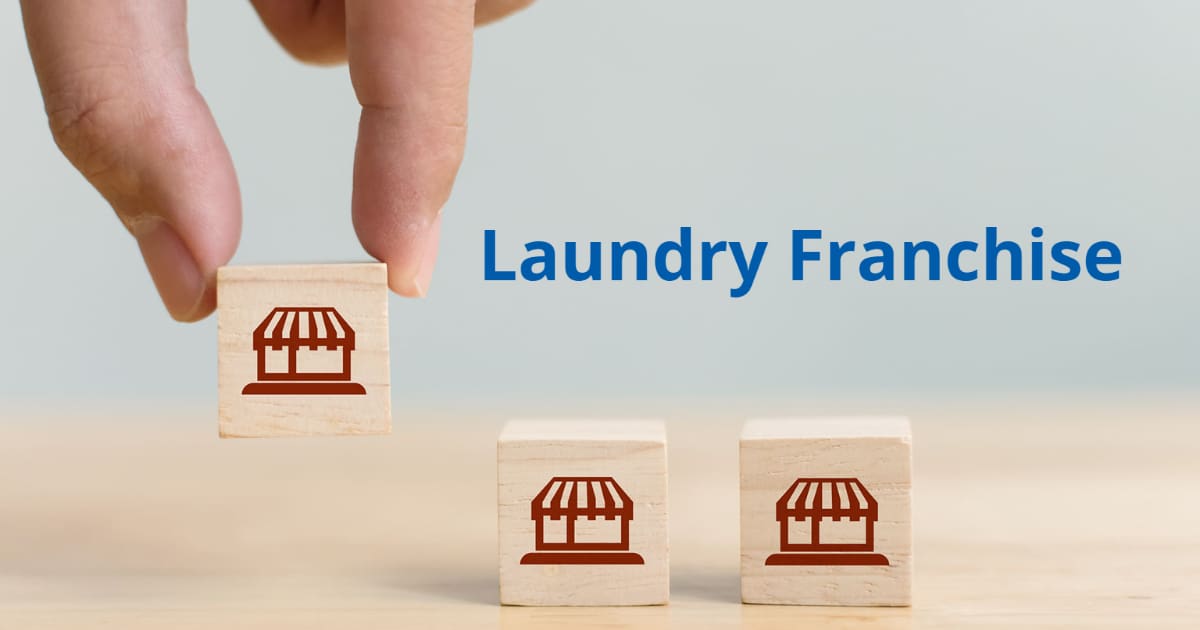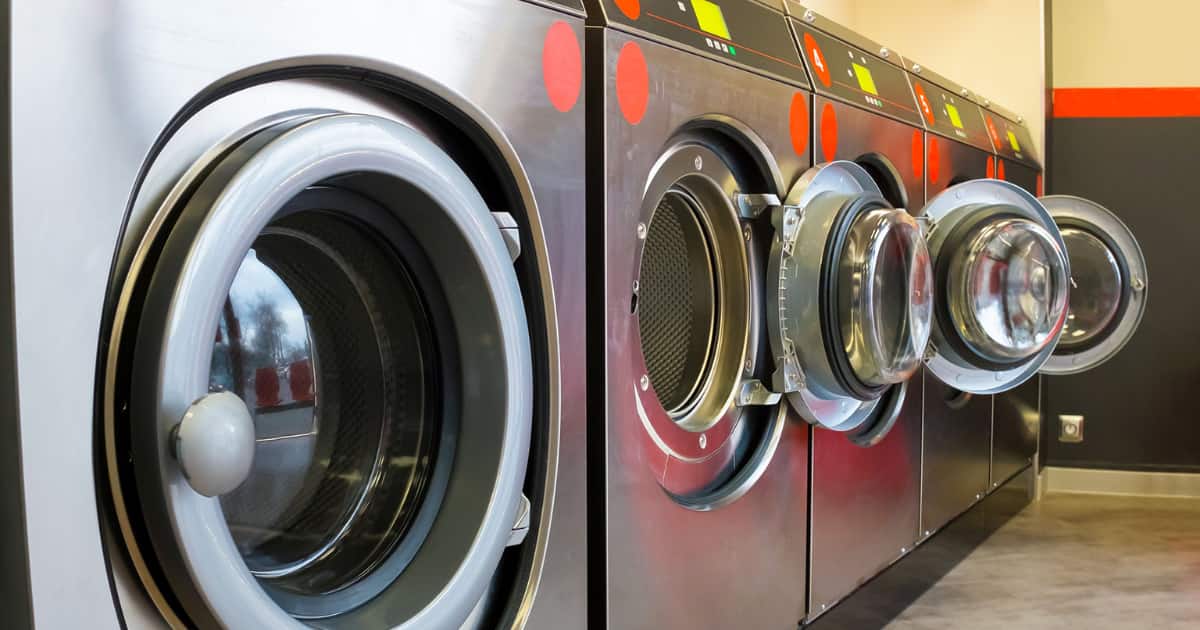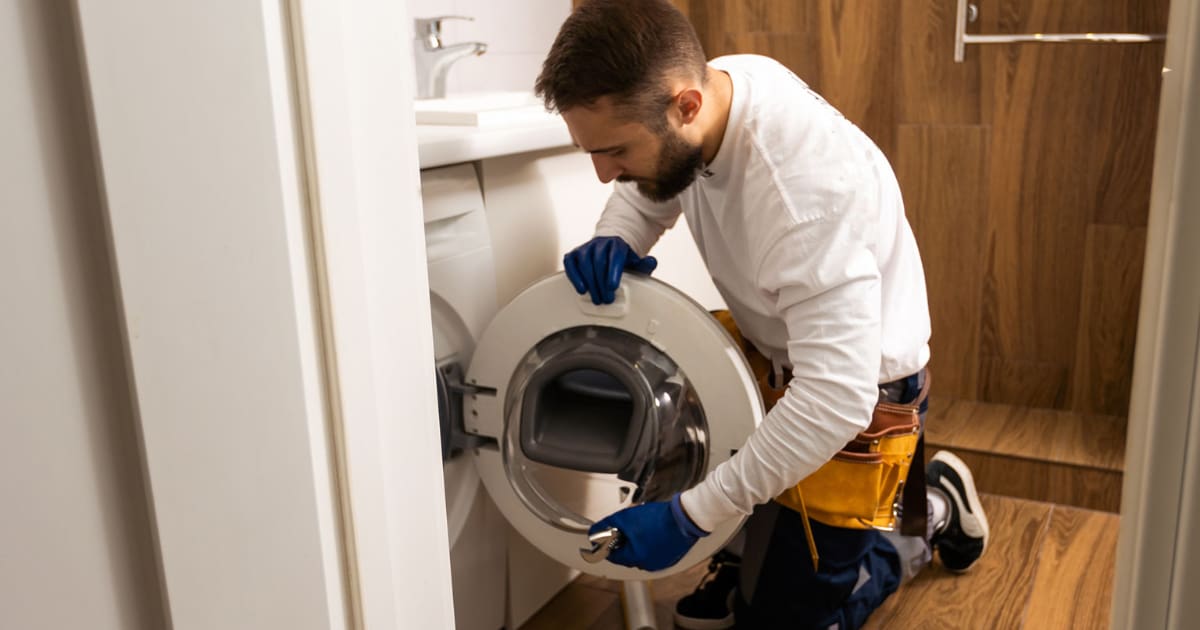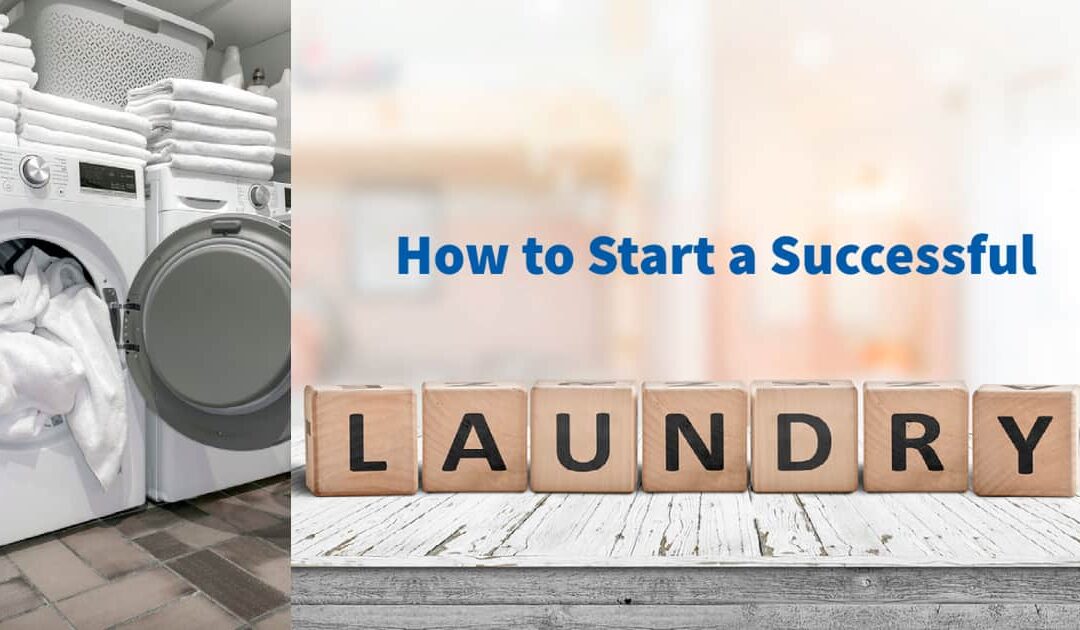Introduction
Starting a laundry business can be a great idea for business owners, founders, and partners looking for a reliable venture. The Flexwasher guide simplifies this process with easy-to-understand steps:
- Know Your Customers: Learn what people in your area need from a laundry service.
- Choose the Right Model: Pick a business model that works best for your community—like self-service or full-service.
- Plan Carefully: Make a simple plan for how to run your business.
- Stay Legal: Know the basic rules for running a business in your area.
- Get the Word Out: Use easy ways to tell people about your laundry service.
This guide is perfect for those new to business or laundry services.
what is laundry business?
The laundry business is a service-oriented industry, it involves providing professional cleaning and care services for clothes and linens. From washing to folding, it offers convenience to busy individuals and businesses.
1. Understanding the Laundry Business Industry
The laundry business encompasses a wide range of services, including self-service laundromats, full-service laundry facilities, and dry-cleaning operations.
With people’s increasingly busy lifestyles, many prefer to outsource their laundry needs to professional services, creating a steady demand for these businesses.
Benefits of Starting a Laundry Business
Embarking on a laundry business venture offers numerous advantages. As you start your entrepreneurial journey, it’s essential to be aware of these benefits:
- Steady Demand: Laundry is a recurring necessity for individuals and businesses, ensuring a constant flow of customers.
- Diverse Service Offerings: From standard laundry to delicate fabric care, the laundry business allows you to cater to various customer needs.
- Flexibility in Business Model: You can choose between self-service laundromats, pickup and delivery services, or even home-based laundry businesses.
- Franchise Opportunities: Franchising offers a proven business model with established brand recognition and support.
- Potential for Growth: As you gain a loyal customer base, expansion and diversification become viable options.
- Low Seasonal Impact: Unlike some businesses affected by seasonal changes, laundry services remain in demand throughout the year.
Download Your Free
Complete Local SEO Strategy
Download our comprehensive Local SEO Strategy designed exclusively for Laundry Solutions and Business! Discover the proven tactics to boost your online visibility, Grow Revenue and Get more local customers from search engines for FREE
is laundry business profitable in India?
Absolutely! The laundry business in India can be highly profitable. By offering eco-friendly services, utilizing high-efficiency machines, and prioritizing top-notch customer care, you can attract loyal customers with the right strategies and dedication, success is within reach!
What are the key strategies for success in the Laundry business in India?
To succeed in Laundry business, target premium customers, offer specialized fabric care, and invest in modern equipment. Building a strong brand, providing excellent service, and staying updated with industry trends are crucial for long-term success.
2. Market Research and Business Plan
Before delving into the laundry business, conducting comprehensive market research is crucial. Understanding the market landscape and your target audience will help you develop a well-informed laundry business plan.

Conducting Market Research
Market research involves gathering data about the local laundry industry, including existing competitors, customer preferences, and pricing trends. Analyzing this information will give you insights into potential opportunities and challenges.
Identifying Your Target Market
Determining your target market is essential for tailoring your services to meet specific customer needs. Are you targeting busy professionals, students, families, or businesses? Each segment may have different laundry requirements, and understanding them is vital for your business success and follow Successful Laundry business marketing plan.
Creating a Comprehensive Laundry Business Plan
A well-structured laundry business plan acts as a roadmap for your laundry venture. It should include a detailed analysis of the market research, your business goals, financial projections, marketing strategies, and laundry operational plans.
3. Legal and Regulatory Requirements
Starting a laundry business involves complying with various legal and regulatory requirements to ensure smooth operations and avoid potential legal issues down the line.
Business Registration and Licenses
The first step is to register your laundry business as a legal entity. Choose a suitable business structure, such as a sole proprietorship, partnership, or LLC, and register it with the appropriate authorities. Additionally, obtain the necessary permits and licenses required to operate a laundry business in your locality.
Compliance with Environmental and Health Regulations
Laundry businesses deal with chemicals and wastewater, making it essential to comply with environmental and health regulations. Ensure that your laundry processes adhere to safety standards and environmental guidelines to protect both your customers and the environment.
4. Setting Up Your Laundry Business
Once you have addressed the legal aspects, it’s time to set up your laundry business for optimal efficiency and customer satisfaction.
Choosing the Right Location
Selecting the right location is crucial for the success of your laundry business. Look for areas with high foot traffic, such as near residential complexes, universities, or commercial spaces. A convenient and easily accessible location will attract more customers.
Designing an Efficient Laundry Space
Efficient space utilization is key to running a productive laundry business. Organize your laundry space to accommodate washers, dryers, folding stations, and customer waiting areas. A well-designed layout will enhance workflow and customer experience.
Procuring Commercial Laundry Equipment
Investing in quality Heavy Duty commercial laundry Machines is a critical aspect of your business setup. Research different brands and models to find High-Efficiency Washing Machines that suit your business needs and budget. Consider factors like capacity, energy efficiency, and durability.
Starting a laundry business requires careful attention to legal and regulatory requirements, securing the necessary licenses, and complying with environmental and health regulations.
Additionally, choosing the right location and designing an efficient laundry space are essential for a successful venture. Investing in commercial laundry equipment ensures smooth Laundry Business operations and customer satisfaction.
By combining these elements, you can establish a thriving laundry business that caters to the needs of your customers while adhering to industry standards and regulations. Embrace the opportunity to offer top-notch laundry services and become a valuable player in the laundry industry.
Find the Laundry Equipment Guidance from below
Front Load Washing Machine
Energy-Efficient Laundry Machine
High-Efficiency Washing Machines
5. Laundry Business Operations
Running a successful laundry business requires a well-structured set of Laundry Business operations. From establishing clear workflows and standard operating procedures (SOPs) to hiring and training the right staff, here’s what you need to know:
Workflow and Standard Operating Procedures (SOPs)
Creating a streamlined workflow and well-defined SOPs are the backbone of an efficient laundry business.
A structured workflow ensures that every step, from receiving the laundry to its delivery, is organized and optimized for speed and quality.
- Sort and Inspect: The laundry process begins with sorting and inspecting the incoming clothes. Categorize items based on fabric type, color, and care instructions to prevent damage and ensure proper treatment.
- Pre-treatment and Stain Removal: Address stains and tough spots before loading the laundry into washers. Proper pre-treatment can significantly improve the final results.
- Washing and Drying: Use commercial-grade washers and dryers, following manufacturer guidelines and appropriate detergent selection. Consider investing in high-efficiency washing machines for reduced energy consumption.
- Folding and Packaging: Implement consistent folding techniques and use appropriate packaging for different items to maintain their cleanliness and presentation.
- Delivery and Customer Service: Ensure timely delivery and excellent customer service to build loyalty and retain customers.
Staffing and Training
Efficient staff management and adequate training are crucial for delivering eco-friendly laundry services and maintaining customer satisfaction.
- Employee Roles: Determine the roles required for your laundry business, such as washers, pressers, and delivery personnel. Assign responsibilities based on individual strengths.
- Training Programs: Develop comprehensive training programs to educate staff on proper laundry techniques, customer service, and safety protocols.
- Quality Standards: Communicate your expectations for quality and consistency to employees and establish incentives to encourage exceptional performance.
- Scheduling: Implement well-organized staff schedules to ensure smooth laundry business operations and sufficient coverage during peak hours.
Quality Control Measures
Maintaining high-quality standards is essential for laundry businesses to gain a positive reputation and retain customers.
- Inspection Protocols: Regularly inspect finished laundry to ensure it meets the desired quality standards. Address any issues promptly.
- Feedback Mechanisms: Encourage customers to provide feedback on their laundry experience. Use their suggestions to improve your services continually.
- Quality Checkpoints: Implement checkpoints at various stages of the laundry process to identify and rectify potential issues.
- Continuous Improvement: Foster a culture of continuous improvement within your team. Regularly evaluate processes and explore opportunities to enhance efficiency and quality.
6. Laundry Business Marketing Plan
An effective laundry business marketing plan is essential for reaching potential customers and establishing your laundry business as a preferred choice. Here are key elements to consider:
Branding and Unique Selling Proposition (USP)
Your laundry business’s branding and USP are critical factors in differentiating yourself from competitors and attracting customers.
- Brand Identity: Create a compelling brand identity that reflects your laundry business’s values and mission. Use consistent branding elements across all marketing channels.
- Unique Selling Proposition: Identify and highlight what sets your laundry business apart from others. Whether it’s same-day service, eco-friendly practices, or exceptional customer care, communicate your unique offerings.
Digital Marketing Strategies
In today’s digital age, online presence and digital marketing for Laundry business are essential for business success. Leverage various digital channels to reach your target audience effectively.
- Website: Design a user-friendly website that showcases your laundry services, pricing, and contact information. Ensure it is mobile-responsive for easy access.
- Social Media: Utilize popular social media platforms to engage with potential customers, share laundry tips, and promote special offers.
- Google My Business: Claim and optimize your Google My Business profile listing to improve local search visibility and gain customer reviews.
- Online Advertising: Consider investing in online advertising through Google Ads or social media platforms to target specific demographics.
- SEO-Search Engine optimization: Ever wondered why some laundry businesses thrive online, while others seem to linger in obscurity? The secret ingredient is a well-planned and effectively implemented Search Engine Optimization (SEO) strategy. SEO is the key that opens the door to increased online visibility, helping you maximize your customer reach. Effective SEO Tips for Laundry Website
Guest Posting and Content Marketing
Guest posting on relevant blogs and creating valuable content for your website can establish your laundry business as an authoritative source in the industry.
- Content Creation: Produce informative and engaging content related to laundry care, stain removal tips, and the benefits of professional laundry services.
- Guest Blogging: Collaborate with industry influencers and other businesses to write guest posts for their blogs, reaching a broader audience.
- Email Marketing: Implement email marketing campaigns to keep customers informed about promotions, discounts, and new services.
Creating a successful laundry business requires a well-thought-out operations plan and a strategic marketing approach. By implementing efficient workflows, SOPs, and quality control measures, you can ensure your laundry services meet and exceed customer expectations.
Additionally, focusing on branding, USP, and digital marketing will help you reach a wider audience and establish a strong online presence.
Embrace the power of digital marketing and prioritize customer satisfaction, and your laundry business will thrive in this competitive industry.
7. Eco-Friendly Laundry Services
In today’s environmentally conscious world, adopting eco-friendly laundry Services in the laundry business is not just a trend; it’s a responsibility. Embracing sustainable initiatives can not only benefit the planet but also attract environmentally conscious customers.

Adopting Environmentally Sustainable Practices
As a laundry business owner, there are several eco-friendly practices you can adopt to minimize your environmental footprint:
- Energy-Efficient Machines: Invest in high-efficiency washing machines and dryers that consume less water and electricity. These machines not only save resources but also reduce utility costs in the long run.
- Cold Water Washing: Encourage customers to opt for cold water washing whenever possible. Washing clothes in cold water not only preserves fabric quality but also saves energy used to heat water.
- Eco-Friendly Detergents: Choose biodegradable and phosphate-free detergents that are gentle on fabrics and the environment. Inform customers about the benefits of using eco-friendly detergents and offer them as an option.
- Water Recycling: Implement water recycling systems to reuse treated water for non-potable purposes like cleaning floors or watering plants. This reduces water consumption and waste generation.
- Sustainable Packaging: Opt for eco-friendly packaging options, such as recycled or biodegradable materials, to minimize plastic waste.
Promoting Green Initiatives to Attract Customers
Once you have integrated eco-friendly laundry services into your laundry business, it’s crucial to communicate these initiatives to your customers. Promoting your green initiatives can help attract environmentally conscious consumers and build brand loyalty.
- Educate Customers: Create informational materials and display them prominently in your laundry facility, explaining the eco-friendly practices you’ve adopted. This empowers customers to make environmentally conscious choices.
- Marketing Collateral: Use your website, social media platforms, and email marketing to highlight your laundry business’s commitment to sustainability. Share success stories and testimonials from satisfied customers who appreciate your green efforts.
- Partnerships and Collaborations: Collaborate with local environmental organizations or charities to support green initiatives in the community. Participating in eco-conscious events can help raise awareness about your laundry business and its commitment to the environment.
- Eco-Friendly Loyalty Programs: Offer rewards or discounts to customers who consistently choose eco-friendly options, such as cold water washing or using eco-friendly detergents.
- Customer Engagement: Encourage customers to share their own eco-friendly laundry tips and experiences on social media platforms using a branded hashtag. This fosters a sense of community and engagement with your laundry business.
Laundry Services and Products
Diversifying your laundry services and offering the right laundry products are essential for meeting the diverse needs of your customers while staying true to your eco-friendly vision.
Diversifying Laundry Services Offered
Expand your laundry service offerings to cater to various customer preferences and requirements:
- Dry Cleaning Services: Consider adding eco-friendly dry-cleaning services that use non-toxic solvents to preserve the environment and protect delicate fabrics.
- Eco-Friendly Laundry services: Create bundled packages that specifically highlight your eco-friendly services and encourage customers to opt for sustainable options.
- Organic Fabric Care: Offer specialized care for organic and natural fabrics, ensuring they receive gentle treatment and eco-friendly detergent.
Selecting the Right Laundry Products and Supplies
When it comes to eco-friendly laundry products and supplies, making informed choices is essential:
- Eco-Friendly Detergents: Source detergents that are biodegradable, free from harsh chemicals, and safe for the environment.
- Fabric Softeners and Stain Removers: Opt for eco-friendly alternatives that do not contain harmful ingredients but still provide excellent results.
- Energy-Efficient Dryers: Choose dryers equipped with energy-saving features like moisture sensors and low-heat settings to reduce energy consumption.
- Eco-Friendly Packaging: Select packaging materials made from recycled or sustainable materials, and encourage customers to recycle used packaging.
Embracing eco-friendly practices in your laundry business is not only a responsible choice for the environment but also a strategic decision to attract environmentally conscious customers.
By adopting sustainable initiatives, promoting your green efforts, and diversifying your eco-friendly laundry services, you can position your laundry business as a leader in sustainability.
Remember, it’s not just about offering eco-friendly options; it’s about fostering a sense of environmental stewardship among your customers and inspiring them to make greener choices in their laundry routines. Also Find laundry baskets and its types.
Together, we can create a more sustainable future while providing top-notch laundry services to the community.
8. Laundry Franchise Opportunity
For aspiring entrepreneurs looking to enter the laundry business, a laundry franchise can offer a promising laundry Franchise opportunity. However, like any business venture, franchising comes with its own set of advantages and disadvantages.

Let’s explore the pros and cons of laundry franchising in the laundry industry and how to evaluate the available options:
Pros of Laundry Franchising
- Established Brand and Support: Joining a laundry franchise gives you access to a well-known brand with a proven track record. Franchisors often provide comprehensive support, including training, marketing materials, and ongoing assistance.
- Reduced Risk: Franchising offers a lower risk compared to starting a business from scratch. You’ll benefit from the franchisor’s experience and avoid some of the challenges faced by independent businesses.
- Streamlined Operations: Franchisors have established standardized operations and procedures, ensuring consistency across all franchise locations. This allows for a smoother startup and operational process of Laundry services.
- Marketing Power: Being part of a recognized franchise brand can attract customers more easily than starting a new, unknown business. National or regional marketing campaigns by the franchisor can also benefit your local franchise.
Cons of laundry Franchising
- Franchise Fees and Royalties: Franchisees are required to pay upfront fees and ongoing royalties to the franchisor. These expenses can impact your initial laundry franchise investment and long-term profitability.
- Limited Flexibility: Franchisees must adhere to the franchisor’s rules and guidelines, which may restrict creative freedom and innovation in certain aspects of the business.
- Dependency on Franchisor: Your success may be tied to the performance and decisions of the franchisor. Any negative reputation or financial troubles faced by the franchisor could affect your local business.
- Territorial Restrictions: Some franchises have territorial restrictions, meaning you may face competition from other franchisees within the same brand in nearby areas. Understanding the Laundry Franchise model in Detailed
Evaluating Laundry Franchise Options
Before committing to a laundry franchise, thoroughly evaluate the available options to ensure the best fit for your goals and values.
- Research Franchise Brands: Conduct in-depth research on different laundry franchise brands. Consider their reputation, market presence, and customer reviews.
- Financial Viability: Review the franchise’s financial documents, including the Franchise Disclosure Document (FDD), to understand the initial laundry franchise investment, ongoing costs, and potential profitability.
- Franchisee Satisfaction: Connect with current and past franchisees to gauge their level of satisfaction with the franchisor’s support and the overall franchise experience.
- Visit Existing Franchise Locations: Visit operating franchise locations to see firsthand how the business operates and interacts with customers.
Financial Management and Investment
Before embarking on any business venture, a thorough understanding of financial management and laundry Franchise investment is crucial.
Here are key financial aspects to consider for your startup cost laundry franchise:
Startup Costs for a Laundry Franchise
The startup costs for a laundry franchise can vary widely based on the brand, location, and the size of the facility. Some common startup expenses include:
- Franchise Fee: The initial fee paid to the franchisor for the right to operate under their brand.
- Equipment and Supplies: Purchase or lease of laundry equipment, detergents, and other necessary supplies.
- Real Estate and Renovations: Costs associated with leasing or purchasing the property and any required renovations.
- Marketing and Advertising: Budget for local marketing efforts to promote your laundry business franchise.
- Working Capital: Sufficient funds to cover operating expenses until the business becomes profitable.
ROI Analysis and Budgeting
Conducting a thorough return on investment (ROI) analysis is essential to determine the potential profitability of your laundry franchise. Consider the following aspects:
- Projected Revenue: Estimate the expected revenue based on the franchise’s historical performance and market research.
- Operating Expenses: Calculate all recurring expenses, including rent, utilities, employee wages, and maintenance costs.
- ROI Period: Determine the expected time it will take to recoup your initial investment and start generating profits.
- Budgeting: Develop a comprehensive budget that accounts for all costs and revenue projections.
Securing Financing and Funding
Once you have a clear understanding of the startup costs and financial projections, explore various options for securing financing:
- Personal Savings: Consider using personal savings or assets as a source of initial investment.
- Bank Loans: Approach banks and financial institutions for business loans.
- Franchisor Financing: Inquire if the franchisor offers any financing options or partnerships with lenders.
- Investors and Partnerships: Explore the possibility of seeking investors or forming partnerships to share the financial burden.
Entering the laundry business through a laundry franchise opportunity can be a viable path to entrepreneurship.
Understanding the pros and cons of franchising, evaluating available options, and conducting thorough financial management and investment analysis are crucial steps in making an informed decision.
By aligning your goals with the right laundry franchise and securing the necessary funding, you can embark on a rewarding journey of owning and operating a successful laundry business.
Remember, every franchise has its unique aspects, so seek advice and guidance from experts and fellow franchisees to gain valuable insights and make your laundry franchise venture a resounding success.
Download Your Free
Digital Marketing Plan Template
Build a practical, strategic marketing plan that generates more web traffic, leads and Conversions. Reach Your Target Audience Where They Are and Drive Sales Like Never Before
9. Laundry Washing Machines: Advantages and Cost Savings
In the competitive laundry business, investing in high-efficiency washing machines can be a game-changer. These advanced appliances offer numerous benefits, both for business owners and customers.

Let’s explore the advantages of high-efficiency washing machines and the significant cost savings they can bring to your laundry business:
Advantages of High-Efficiency Washing Machines
- Energy and Water Savings: High-efficiency washing machines are designed to use significantly less water and electricity compared to traditional machines. They employ innovative technologies such as load-sensing and recirculation systems to optimize resource usage.
- Reduced Drying Time: These machines extract more water during the spin cycle, reducing the moisture content in the laundry load. As a result, the drying time is shorter, leading to lower energy consumption.
- Gentler on Fabrics: High-efficiency washers typically feature drum designs that are gentler on fabrics, reducing wear and tear. This extends the lifespan of linens and clothing, saving on replacement costs.
- Eco-Friendly Practices: By reducing water and energy consumption, high-efficiency washing machines contribute to eco-friendly laundry practices. This aligns with the growing demand for sustainable businesses and can attract environmentally conscious customers.
Cost Savings with Energy-Efficient Laundry Machine
- Lower Utility Bills: The reduced water and energy usage of Energy-Efficient Laundry Machines lead to substantial cost savings on utility bills. Over time, these savings can significantly impact your laundry business’s profitability.
- Long-Term Investment: Although high-efficiency washing machines may have a higher upfront cost, their long-term benefits outweigh the initial investment. They tend to be more durable and require fewer repairs, leading to lower maintenance expenses.
- Time Savings: Faster wash cycles and shorter drying times translate to increased laundry turnover. This efficiency allows you to serve more customers and generate higher revenue.
- Customer Attraction and Retention: Customers appreciate the eco-friendly and fabric-friendly practices of Energy-Efficient Laundry Machine. This positive experience can lead to customer loyalty and positive word-of-mouth referrals.
Upgrading Your Laundry Equipment
If you haven’t already, consider upgrading your laundry equipment to High-Performance Washing Machine
for improved business performance.
- Assessing Your Current Equipment: Evaluate your existing laundry equipment to identify machines that are due for replacement or upgrade. Pay attention to their age, efficiency, and maintenance history.
- Selecting the Right Machines: Research different High-Performance Washing Machine models that align with your business needs. Consider factors like capacity, programmability, and water/energy ratings.
- Budgeting and Financing: Determine the budget required for the equipment upgrade and explore financing options if needed. Some manufacturers and vendors offer financing plans tailored for businesses. Laundry Franchise Planning and Strategy
- Installation and Training: Work with reputable suppliers who offer professional installation and training services for your staff. Proper training ensures optimal machine usage and maintenance.
Maintenance and Repairs of Laundry Machines

To maximize the longevity of your laundry machines and avoid costly breakdowns, prioritizing maintenance and making informed repair decisions is essential.
Ensuring Machine Longevity
- Regular Maintenance Schedule: Create a comprehensive maintenance schedule for all your laundry machines. Regularly inspect and clean filters, drain lines, and other critical components.
- Machine Calibration: Periodically calibrate your washing machines to ensure accurate water levels and efficient cycles.
- Employee Training: Train your staff to operate the machines correctly and report any unusual sounds, vibrations, or malfunctions promptly.
- Preventive Repairs: Address minor issues early on to prevent them from escalating into major breakdowns. Engage professional technicians for preventive maintenance tasks.
Repair vs. Replacement Considerations
When faced with a malfunctioning laundry machine, it’s crucial to make an informed decision regarding repair or replacement of Laundry machines:
- Age and Condition: Consider the age of the machine and its overall condition. Older machines nearing the end of their lifespan may be more prone to recurring issues.
- Repair Cost vs. Replacement Cost: Evaluate the cost of repairs versus the cost of a new high-efficiency washing machine. In some cases, frequent repairs can make a replacement more cost-effective in the long run.
- Energy Efficiency: Factor in the energy efficiency of your current machine. Upgrading to a high-efficiency model could lead to significant long-term savings.
- Manufacturer’s Warranty: Check if your existing machine is still under warranty. Repairs covered by warranty can be more cost-effective than out-of-pocket expenses.
Key Points:
Investing in high-efficiency washing machines can yield numerous advantages for your laundry business, including cost savings, benefits of eco-friendly laundry services, and increased customer satisfaction.
Upgrading your laundry equipment with energy-efficient models not only benefits your bottom line but also positions your business as a responsible and sustainable choice for customers.
By combining regular maintenance and making informed repair decisions, you can ensure the longevity of your laundry machines and optimize their performance.
Embrace the advantages of high-efficiency washing machines and stay ahead in the competitive laundry business landscape while positively contributing to the environment.
10. Customer Service Excellence
In the competitive laundry industry, providing exceptional customer service is paramount to building a loyal customer base and fostering business growth.
Let’s explore the strategies for achieving customer service excellence, handling feedback and complaints, and ultimately building customer loyalty:
Building Customer Loyalty
- Personalized Experience: Treat each customer as an individual with unique preferences. Offer personalized services, such as special care for delicate fabrics or remembering customer preferences.
- Consistent Quality: Deliver consistent quality in every aspect of your laundry services, from washing and drying to packaging and delivery.
- Rewards and Loyalty Programs: Implement loyalty programs that reward frequent customers with discounts, special offers, or exclusive benefits.
- Prompt Communication: Respond promptly to customer inquiries, requests, and feedback. Use various communication channels, such as phone, email, and social media, to stay accessible to customers.
Handling Customer Feedback and Complaints
Receiving feedback and addressing customer complaints are valuable opportunities to improve your laundry business and showcase your commitment to customer satisfaction:
- Listen Actively: When customers provide feedback or express concerns, listen attentively and empathize with their experiences.
- Swift Resolution: Aim to resolve complaints as quickly as possible. Address the issue with a positive attitude, and offer a suitable solution or compensation if necessary.
- Learn and Improve: Analyze feedback trends to identify areas for improvement in your laundry operations. Use constructive criticism to make necessary changes.
- Follow-Up: After resolving a customer’s concern, follow up to ensure their satisfaction and willingness to return.
Expansion and Growth Strategies
As your laundry business gains momentum, it’s essential to explore expansion and growth opportunities to take your enterprise to the next level:
Scaling Your Laundry Business
- Efficient Operations: Streamline your laundry operations and optimize workflows to handle increased demand efficiently.
- Additional Service Offerings: Consider diversifying your services, such as offering dry cleaning or specialty fabric care.
- Invest in High-Efficiency Equipment: Upgrading to high-efficiency washing machines and other advanced equipment can increase productivity and reduce operational costs.
- Market Penetration: Explore untapped markets or new locations where there is demand for your laundry services.
Franchising Your Own Laundry Brand
If your laundry business has achieved significant success and you are considering expansion on a larger scale, franchising could be a viable growth strategy:
- Established Business Model: Ensure your laundry business has a well-established and proven business model that is replicable in various locations.
- Brand Identity and Recognition: Build a strong brand identity and invest in marketing to create brand recognition and appeal to potential franchisees.
- Franchise Support: Develop comprehensive training programs and ongoing support for franchisees to ensure consistent service quality.
- Legal and Documentation: Engage legal experts to create robust franchise agreements and documentation to protect your brand and interests.
11. Laundry Services News and Blog
Maintaining an informative and engaging blog that covers industry trends and laundry tips can be an effective way to engage customers and establish your laundry business as an authority:
Keeping Up with Industry Trends
- Research and Analysis: Stay updated with the latest trends, innovations, and technologies in the laundry industry.
- Educational Content: Share valuable laundry care tips, stain removal techniques, and fabric care information through your blog.
- Industry Insights: Write about industry news, market analysis, and emerging practices that impact the laundry business.
- Guest Blogging and Collaborations: Collaborate with industry experts and guest bloggers to bring diverse perspectives and expertise to your blog.
Blogging to Engage Customers and Gain Authority
- Regular Updates: Maintain a consistent blogging schedule to keep customers engaged and encourage repeat visits to your website.
- Interactive Content: Incorporate visuals, infographics, and videos to make your blog posts more engaging and shareable.
- Customer Stories: Feature success stories, testimonials, and feedback from satisfied customers to build trust and credibility.
- Encourage Interaction: Encourage readers to leave comments, ask questions, and share their laundry experiences on your blog.
Key Notes:
Achieving customer service excellence, embracing growth strategies, and maintaining an informative blog are all essential aspects of running a successful laundry business.
By prioritizing customer satisfaction, listening to feedback, and continuously improving your services, you can build a loyal customer base and attract new clients.
As your laundry business expands, consider the opportunities for scaling and potentially franchising your brand to reach new markets.
Engaging customers through an informative and interactive blog can further establish your laundry business as a reliable authority in the industry.
Embrace these strategies, stay ahead of industry trends, and continue to provide exceptional laundry services to succeed and thrive in this competitive business landscape.
12. Write for Us: Opportunities for Guest Writers and Collaborations for SEO Benefits
Are you passionate about the guest posting laundry business and eager to share your knowledge and expertise with a wider audience? If so, we welcome you to contribute as a guest writer and collaborate with us to explore exciting opportunities for SEO benefits.
At FlexWasher Laundry, we believe in fostering a community of industry professionals and enthusiasts who can collectively contribute to valuable content for our readers.
We offer for guest writers and the SEO benefits that come with it.
SEO Benefits of Guest Writing
Collaborating with us as a guest writer offers several SEO benefits that can boost your online presence and improve your search engine rankings:
- Backlinks: Your guest post will include an author bio where you can include a backlink to your website or social media profiles. Backlinks from reputable sites like ours are valuable for SEO and can enhance your website’s domain authority.
- Increased Traffic: As readers engage with your content and follow the provided backlinks, your website can experience an increase in traffic. This boost in organic traffic can lead to new leads and potential customers.
- Brand Visibility: Writing for our platform elevates your brand visibility among our audience and beyond. Your insights and contributions will be associated with expertise in the laundry business domain.
- Social Media Exposure: We actively promote guest articles across our social media channels, further amplifying the reach of your content.
Are you ready to take your dry cleaning business to the next level? A digital marketing / SEO expert is just a call away.
With over 10 years of experience, he can provide the advice and guidance you need to navigate the digital landscape effectively. Don’t hesitate to reach out for personalized assistance.
You can reach Mr. Krishna on mobile. Let’s work together to make your business shine online!
How to Get Started
If you are interested in becoming a guest writer for FlexWasher, please submit a brief pitch or topic proposal to . Our editorial team will review your submission and get back to you with further details.
Make sure to read through these guidelines to ensure your content aligns with their standards and resonates with their audience.
Ready to make your mark in the laundry industry? Reach out to FlexWasher via email at [email protected] to discuss your guest post ideas.
For more details on the guest posting guidelines, visit their Write for us Laundry business page. This is your chance to shine and make a significant impact in the laundry business community. Don’t miss out!
Conclusion: Wishing You Success in Your Laundry Business Journey!
In this article, we explored essential steps and insights for starting and running a successful laundry business.
By understanding the laundry industry, conducting market research, and creating a comprehensive Laundry business plan, you can lay a strong foundation for your venture.
Embracing eco-friendly laundry services, investing in high-efficiency washing machines, and offering diverse laundry services can set your business apart and attract eco-conscious customers.
Additionally, franchising opportunities and strategic growth strategies can propel your laundry business to new heights.
Customer service excellence and handling feedback play a vital role in building customer loyalty and establishing your brand’s authority.
Collaborating with guest writers and maintaining an informative blog can further enhance your online presence and attract a wider audience.
As you embark on your laundry business journey, remember to prioritize customer satisfaction, innovation, and sustainability. With dedication, strategic thinking, and continuous improvement, we wish you immense success in your laundry business endeavors!
Frequently Asked Questions
Can I run a laundry business from home?
Yes, it’s possible to run a small-scale laundry business from home, especially if you’re targeting a local clientele. Ensure that you have the necessary equipment, adequate space, and comply with local regulations and zoning requirements. Keep in mind that a home-based laundry business may have limitations in terms of growth and scalability.
Is a laundry room a good investment?
A well-designed and functional laundry room can be a good investment, as it adds convenience and value to your home. If you’re running a laundry business, a dedicated laundry room can help streamline operations, improve efficiency, and create a more professional image for your clients.
How much does it cost to start a laundry business in India?
The cost of starting a laundry business in India varies depending on factors like the size of your Laundry operations, location, equipment, and type of services offered. The initial investment can range from INR 8 – 12 lakhs for a small-scale operation to INR 30 – 50 lakhs for a larger, more sophisticated setup.
What is the minimum investment for a laundry business?
The minimum investment for a laundry business depends on the scale and complexity of the operation. For a small, home-based business, you might need a minimum investment of INR 4 – 8 lakhs, while a more extensive setup with commercial-grade equipment and a dedicated location may require an investment of INR 18 lakhs or more..
What are the 5 stages of laundry items?
The five stages of laundry items are:
- Sorting: Separate laundry items based on color, fabric type, and care instructions.
- Pre-treatment: Treat stains and heavily soiled areas before washing.
- Washing: Use appropriate detergents, water temperature, and washing cycles as per the care instructions.
- Drying: Dry laundry items using a dryer or air-drying, depending on fabric type and care instructions.
- Folding and storage: Fold and store laundered items to maintain their appearance and prevent wrinkles.
What is the basic principle of laundry?
The basic principle of laundry is to clean and maintain the appearance and condition of various textile items using water, detergents, and mechanical action, while adhering to the specific care instructions for each type of fabric to prevent damage.
What are the 7 steps to doing laundry?
The seven steps to doing laundry are:
- Sorting laundry items
- Pre-treating stains
- Choosing the right detergent and laundry additives
- Selecting the appropriate water temperature and wash cycle
- Washing the laundry items
- Drying the laundry items
- Folding and storing the laundered items
What are the 5 washing materials?
The five washing materials commonly used in laundry work are:
- Laundry detergent: A cleaning agent that helps remove dirt and stains from fabrics
- Fabric softener: A conditioning agent thatmakes fabrics softer, reduces static cling, and imparts a pleasant fragrance
- Bleach: A chemical agent used to remove stains, brighten whites, and disinfect laundry items
- Stain remover: A specialized product designed to treat and remove specific types of stains
- Laundry additives: Products like oxygen bleach, borax, or baking soda that can enhance the cleaning power of detergents and address specific laundry issues
What are the most commonly laundry problems?
- Overloading the washing machine
- Using the wrong amount of detergent
- Mixing different types of fabrics and colors
- Not treating stains before washing
- Incorrect drying techniques
What are the challenges of laundry?- Time management and efficiency
- Proper handling of different types of fabrics
- Maintaining equipment and machinery
- Managing utility costs
- Adapting to changing market demands
Is laundry a difficult job?While laundry may not be considered difficult, it does require attention to detail, knowledge of fabrics and chemicals, and time management skills to ensure efficiency and customer satisfaction.
What are risks in laundry business?
- Fluctuating market demand
- High competition
- Increased utility costs
- Equipment breakdowns and maintenance
- Changes in regulations and industry standards
What is hotel laundry?Hotel laundry refers to the laundering of linens, towels, and other textiles used in hotels and hospitality establishments. This includes services like washing, drying, ironing, folding, and storing these items for reuse.
What are the 6 laundry agents?
- Detergent
- Fabric softener
- Bleach
- Stain remover
- Laundry additives (e.g., oxygen bleach, borax, baking soda)
- Water
What is housekeeping laundry?
Housekeeping laundry refers to the process of laundering linens, towels, and other textiles used in households and residential settings. This includes services like washing, drying, ironing, folding, and storing these items for reuse.
What are the 2 categories of hotel laundry?
- Guest laundry: Items used by guests, such as towels, bed linens, and personal clothing
- House laundry: Items used by the hotel itself, such as uniforms, table linens, and cleaning cloths
What are the 2 types of laundry machine?
- Top-loading washing machines: These machines have a vertically mounted drum and rely on an agitator or impeller to move clothes through the water.
- Front-loading washing machines: These machines have a horizontally mounted drum and use a tumbling action to clean the clothes.
Does laundry include ironing?
Yes, Dry cleaning and laundry services often include ironing as a part of the process to provide customers with clean, wrinkle-free clothing and linens.
What is the basic principle of laundry?
The basic principle of laundry is to use water, detergent, and mechanical action to remove dirt, stains, and odors from fabrics, while preserving their quality and appearance.
Which machine is the best for laundry business?
The best machine for a laundry business depends on the specific needs and budget of the business. In general, commercial-grade front-loading washing machines and dryers with high capacity and energy efficiency are preferred.
Will laundromat work in India?
Yes, laundromats can work in India, especially in urban areas where there is a high demand for convenient and professional laundry services. However, the success of a laundromat depends on factors like location, target market, and effective marketing strategies.
What is the GST rate for laundry income?
As of September 2021, the GST rate for laundry services in India is 18%. Please note that tax rates may change over time, and it is essential to verify the current rate with the appropriate tax authorities.
How much does a laundromat machine cost in India?
The cost of a laundromat machine in India varies based on factors like brand, capacity, and features. On average, a commercial-grade washing machine can cost between INR ₹ 90,000 and ₹ 6,00,000 while a commercial dryer may
Promote Your Laundry Business Online with Proven Online Marketing Strategies!
Unlock the Secrets of Google Ranking Optimization Strategies , Fast-Track Your Laundry Business Success with Mastermind Mr. Ram
Related Articles
Which AI Tools Are Used by Top SEO Agencies in the AI Transformation Era?
AI isn’t just disrupting SEO — it’s rebuilding it from the ground up. The world’s top SEO agencies are no longer relying on manual spreadsheets or...
Hire LLM Optimized SEO Service & Rank Faster | Get Yours
Every single day you postpone, your competitors are capturing market share in a new arena: AI Answer Engines. The digital landscape has fundamentally...
LLM Retrievable Content Creation Services: Future-Proof Your SEO with AI Agent-Ready Content
As search evolves beyond simple keyword matching, traditional SEO strategies are becoming obsolete. LLM retrievable content creation services are...
AI Powered SEO Services: Transform Your Digital Visibility and Rank Smarter
In today's fast-paced digital landscape, businesses struggle with traditional SEO methods that often fall short in efficiency and...
AI Powered Marketing for Laundry, Dry cleaners Services Business with Smart AI Automation
Why Read This? AI Marketing Is Changing Laundry Businesses Are you a laundry or dry cleaning business owner looking to grow faster in today’s AI era?...
AI-Driven SEO Services: A Game Changer for Laundry & Dry Cleaning Businesses
AI-Driven SEO Services: How Laundry & Dry Cleaning Businesses Win Online Imagine a customer urgently needing their clothes cleaned. They pull out...
Disclaimer: The brands / costs / Information mentioned in this blog are the recommendations provided by the author. FlexWasher-Laundry Website does not claim to work with these brands / represent them / or are associated with them in any manner. Investors and prospective franchisees are to do their own due diligence and in-depth research before investing or Purchase in/on a business/Product/Services at their own risk and discretion. FlexWasher-Laundry Website or its Directors disclaim any liability or risks arising out of any transactions that may take place due to the information provided in this blog.



